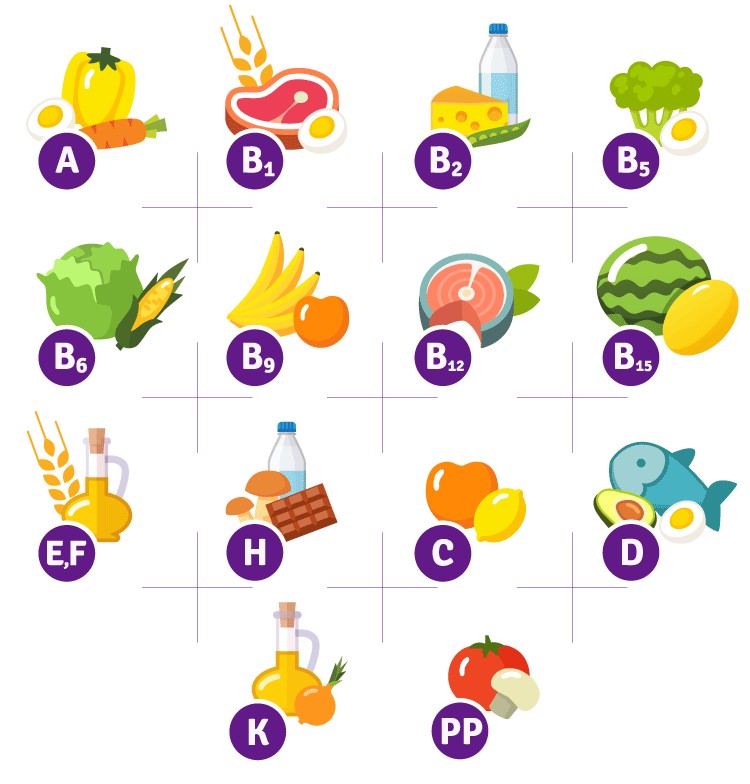Vitamin names and functions

Most people are familiar with vitamins following an A-E naming system, such as vitamin A and vitamin B12. They also groupe into other names, such as retinoids and cobalamin, respectively. Furthermore, vitamins. Can known as fat-soluble or water-soluble, which influences if they can be stores and how often they need to be consumed.
Fat-soluble vitamins include vitamins A, D, E, and K. Can stored by the body for later use, which means they don’t need to be consumed as often. Vitamin A. Also known as retinoids and carotene, is needed for vision, bone growth, and the immune system, and known to antioxidants. That can lower the risk of various cancers.
Vitamin D
or calciferol, is important for normal calcium and phosphorus levels in the blood, thereby helping in the formation of teeth and bones. Vitamin E, also known as alpha-tocopherol, is an antioxidant and protects vitamin A and lipids from damage. It’s also theorize to play a role in Alzheimer’s disease. Vitamin K, or phylloquinone menadione, is important for blood clotting by activating proteins and calcium.
B vitamins and vitamin C are water-soluble vitamins. That need to consume regularly. Because the body is incapable of storing them for later use.
Vitamin B1
Also known as thiamine, aids in converting food into energy and is essential for skin, hair, muscles, brain and nerve function. Along with B1, vitamins B2 (riboflavin), B3 (niacin), vitamin B7 (biotin), and B5 (pantothenic acid) also aid with digestion. Vitamins B2 and B3 are also needed for healthy skin, blood, and brain. Whereas Vitamin B5 is needed for lipid production, neurotransmitters, hormones, and hemoglobin.
Vitamins B6 and B12
also known as pyridoxine and cobalamin, respectively, both help lower homocysteine levels and might aid in lowering the risk of heart disease. Vitamin B6 โปรโมชั่นพิเศษจาก UFABET สมัครตอนนี้ รับโบนัสทันที is also important in the production of serotonin and red blood cells. Has a role in cognitive abilities and immune function. Vitamin B12 has a role in the production of new cells, breaking down fatty acids and amino acids, protecting nerve cells and helping to produce DNA.
Vitamin C
or ascorbic acid, has many different uses. It is believe to lower the risk of several cancers and protect against cataracts. It also aids in the production of collagen, serotonin. Norepinephrine. It can also act as an antioxidant and strengthen the immune system. Choline also has a role in the production of the neurotransmitter production acetylcholine.
One of the more famous vitamins is vitamin B9, also commonly known as folic acid. Folic acid is important for cell creation and thus critical for pregnant women to prevent damage to a growing embryo. It’s also believe to reduce colon and breast cancer risk. Can lower homocysteine levels and heart disease risk.